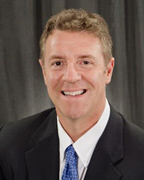Community Psychiatry
Our Mission
To provide adults and children with a comprehensive array of clinical and support services assisting them to overcome obstacles related to physical and mental health issues, financial difficulties, transportation problems, and housing challenges affecting their recovery.
The Community Division of the Department of Psychiatry delivers community-based care of the highest order in partnership with people with serious mental illness and substance use disorders and their families, setting new standards for innovation and service. People living with mental illness or substance use disorders (SUDs) receive comprehensive, integrated, accessible care delivered with a person-centered and humanistic approach.
The Community Division promotes mental health, medical well-being, and recovery through comprehensive, holistic clinical care that encompasses the needs identified by clients, their families, and support networks.
Comprehensive Clinical Care Services
The Community Division offers a broad array of outpatient and outreach clinical services for vulnerable individuals. Our Strong Minds and Strong Ties clinics are Certified Community Behavioral Health Clinic (CCBHC) meeting the highest standards of patient care as determined by the Department of Health and Human Services.
Strong Ties - Community Support Clinic
For over 40 years, this comprehensive community mental health and support program has delivered state-of-the-art, multidisciplinary, team-based outpatient mental health services to adults with severe and persistent mental disorders. Strong Ties has two Assertive Community Treatment (ACT) programs and one Forensic Assertive Community Treatment (FACT) program. The ACT programs deliver intensive outreach mental health services for individuals who are unable to access traditional clinic services, and the FACT program serves those impacted by justice-involvement.
Strong Ties Young Adult Program - A Multidisciplinary community mental health services for young adults experiencing emerging serious mental disorders.
Strong Minds - Adult Outpatient Services
Our Adult outpatient services offer counseling, group therapy, and/or medication management for individuals 18 years of age and up. Additional services offered at our location include:
Deaf Wellness – counseling and medication management for patients who are deaf or hard-of-hearing.
Lazos Fuertes – counseling and medication management for patients whose speak Spanish.
Outpatient Psychiatric Consultation Service - assistance for patient’s primary care physician or current prescribing provider.
Health Home Care Management
Our Health Home Care Management Team provides outreach, engagement, and an array of additional services to high-need individuals across the region to help them maintain their health. By collaborating with mental health and substance abuse providers, Care Managers assist individuals in obtaining medications, securing housing, and accessing social services while connecting them to community supports that meet their unique needs.
Education and Training
The Community Division programs serve as training sites for PGY-III and PGY-IV psychiatry residents, along with medical students, and graduate students in clinical psychology, nursing, social work, music, and family therapy. Our programs serve as training sites for pharmacy students and credentialed addiction counselors. Our division’s renowned mental health clinicians and research team attract top applicants to its accredited fellowships and certification programs.
Forensic Psychiatry Fellowship
The Charles E. Steinberg Fellowship in Psychiatry and Law is one of the original forensic psychiatry programs recognized by the ACGME. Over the past 30 years, we have established deep roots in this ever-growing discipline, and refined our clinical and didactic curriculum to best prepare fellows for the unique work of forensic psychiatry.
Our Research

Laboratory of Integration Services for Complex Needs (LISCN)
To develop innovative solutions for integrated care, LISCN monitors patients with complex biomedical, social, and psychiatric needs facing multiple barriers to care who are often navigating disparate health and social service systems.

Schizophrenia Treatment and Research Laboratory (STAR)
New initiatives feature both national and international collaborations with a continued purpose; to improve the lives of people with schizophrenia and their families through generation and dissemination of new knowledge.





